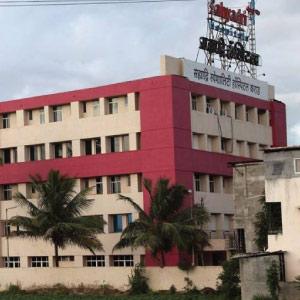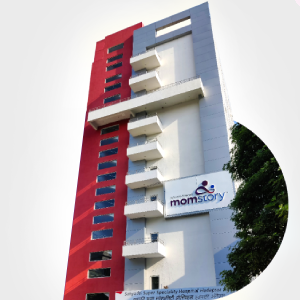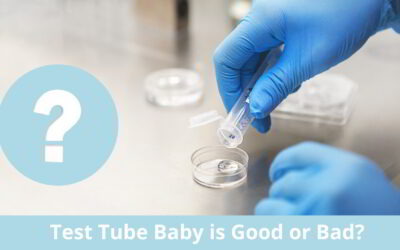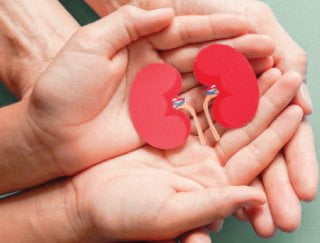
Overview
IVF stands for In Vitro Fertilisation and is an advanced reproduction technique in which fertilization occurs in a lab. IVF is a boon that helps infertile couples to fulfill their dreams of becoming parents. It is an infertility treatment that allows a woman to conceive and experience motherhood.
In the normal reproduction process, fertilization occurs inside a woman’s body. But because of some infertility issues in a man or a woman, natural fertilization can not happen. This is where the need for an IVF procedure comes in. During an IVF procedure, sperm and eggs are left in a petri dish so that fertilization can take place. Once the embryo is formed, it is then transferred to the woman’s uterus.
Quick Facts To Read Under In Vitro Fertilization
IVF Process
IVF is not a single-step procedure or treatment. It involves various steps and stages that give the result. There are five significant steps involved in an IVF procedure:
- Stimulation of Ovaries or Ovulation Induction
This is the foremost step of an IVF procedure, in which your doctor will give you certain medications to increase egg production in your body. In a normal menstrual cycle, ovaries produce only one or two eggs. But to increase pregnancy chances by IVF, you need a good number of eggs. During this time, the doctor will do regular ultrasounds and blood tests to check your hormone levels and the production of eggs in the ovaries.
- Retrieval of eggs
Once there is enough production of eggs, the next step includes retrieving those eggs after their maturation. A minor surgery does this egg retrieval during an IVF; your doctor will perform it at the clinic. With the help of a suction tube, multiple eggs can be removed in 25 minutes. You may feel slight cramping after this process, which is normal. If you face severe discomfort, consult with your doctor as soon as possible.
- Retrieval of sperm
The next step of an IVF procedure includes the retrieval of sperm, in which the male partner is asked to collect his semen sample through masturbation. If the collected sample doesn’t have enough sperm, then another method of sperm retrieval is used, like a testicular aspiration. In this method, sperms are directly retrieved from the testicle with the help of a surgical needle.
- Fertilization in the lab
Once the eggs and sperms have been retrieved, the next important step of an IVF procedure is Fertilization. Now, in the lab, if the sperms are healthy, conventional fertilization is done. In this, we store sperms and eggs in an incubator for a night. The sperms fertilize the eggs during the night.
In another case, where sperms are not motile, ICSI, Intracytoplasmic sperm injection, is performed as a part of IVF. In ICSI, one of the best sperms is selected and directly injected into a mature egg.
- Transferring an Embryo
The last step of the IVF procedure includes the transfer of the embryo. After fertilization, the fertilized egg is called an embryo. The growth of this embryo is monitored for at least 2-3 days, and when it grows properly, it is then transferred into the lady’s uterus. After the transfer, the embryo implants itself on the lining of the uterus. If the implantation is done properly, it results in pregnancy.
IVF vs ICSI vs IUI
In IVF, if sperms are healthy, they will fuse the egg on their own. However, in IVF cases, where sperms are not enough motile, which means sperms can not move properly, we do ICSI as a part of IVF. ICSI, or Intracytoplasmic sperm injection, is a refinement of IVF in which a healthy sperm is selected from the semen sample and is directly inseminated or injected into the mature eggs. ICSI-IVF is used in cases with male infertility issues.
The third option is IUI, which stands for Intrauterine Insemination. It is a fast insemination process that skips the whole lab procedure. In IUI, a single healthy sperm is selected from the sample and is directly injected or inseminated into the woman’s uterus at the time she is ovulating.
These techniques require highly skilled practitioners or a renowned fertility hospital in Pune. It’s crucial not to underestimate the impact of selecting the right doctor for any fertility treatment. The difference it can make is truly remarkable.
IVF, ICSI, or IUI: How doctors decide which treatment to choose
When you first visit a fertility clinic, many tests are done as part of the workup for male and female infertility. These test results help your doctor understand the exact problem and then decide on the best fertility treatment for your case. This is based on various factors like your medical history and the results of various physical examinations and investigations.
No matter which IVF treatment option your doctor chooses, he or she will do it properly after consulting with you. The doctor will discuss everything and choose the best treatment for you and your wife.
But for the best IVF treatment, you need to choose a hospital renowned in that speciality, like Sahyadri Hospitals, the best IVF hospital in Pune.
Cost of IVF
The cost of IVF treatment in Pune also depends upon the fertility clinic you choose, the experience of the doctors, the method of performing a procedure, and the technologies and techniques used.
The success rate of IVF
Overall, the success rate of having a baby in the first IVF cycle is around 33%, which increases to 50-70% until the eighth cycle. This success rate is measured according to the number of live births.
It is crucial to do thorough research before choosing the best IVF centre in Pune. It makes a huge difference in results. Sahyadri Hospitals is the most renowned fertility clinic in Pune, with a team of expert specialists.
The Health of IVF babies
The most significant risk of IVF is multiple pregnancies, which also comes with a lot of complications. Other than this, the percentage of congenital disabilities in IVF infants is 9, whereas it is just 6.5% in natural-born infants.
It is also seen that IVF babies are born prematurely or with a low birth rate; some have birth defects, and some face neonatal deaths. But, it is to be noted that all these abnormalities are caused by the factors behind male or female infertility and their age as well. The process has nothing to do with the health of the baby.
When to go for IVF
- Problem with ovulation due to PCOS/PCOD
- Low sperm count
- Blocked Fallopian tubes
- Female partner having endometriosis
- Or if someone doesn’t wish to pass on some inherited genetic disorder to the baby.
Why does IVF fail
Along with successful IVF cycles, some IVF cycles fail. There are various reasons behind the failure of IVF:
- Embryo Quality :
Some embryos don’t implant after their transfer into the uterus. This happens because the embryo has defects.
- Female Age :
Women of older age will have fewer number of eggs, and that too of low quality. Women above 40 have a lower success rate of IVF as compared to that of women under 30-35.
- Lifestyle :
The success rate of IVF decreases for women who smoke, are overweight or underweight, etc. Just like a normal pregnancy, lifestyle has a significant impact on IVF pregnancies as well.
- Ovarian Response :
In the initial steps of IVF, women are given certain medications to increase the production of eggs. Now, a woman who is above 40 will automatically have low AMH, which is why her ovaries will not respond to such medication. No response means not having enough number of eggs for the IVF cycle, which in turn means that an IVF cycle can fail.
- Chromosomes Problems :
An IVF cycle may also fail in cases where an embryo will have some chromosome abnormality, and the body will reject it. These abnormalities can either pass on from a parent or be newly developed in the stages of embryo division.
Miscarriages in IVF
Similarly, women of older age have a higher risk of miscarriages as compared to women below 40. Women above 45 have a 50% chance of miscarriages. Also, women who have some underlying health condition have a risk of miscarriages.
Repeated IVF failures: What to do next
In most cases, another cycle will yield the desired result. If the cycle fails again, other options one could consider are third-party assistance or adoption.
Sometimes, IVF doesn’t work, but there are reasons for it. It’s okay to try again because many couples succeed in having a baby in the future. Don’t lose hope.
It’s crucial not to underestimate the impact of selecting the best IVF doctor or clinic in Pune. We are repeating this phrase because a lack of expertise in that surgeon or clinic can cause failed IVF. So, do thorough research before choosing a fertility hospital in Pune.
Our Team of IVF Experts at Sahyadri Hospitals
Blogs/News Articles
Patient Feedback
We thank you for choosing Sahyadri Hospitals for your treatment. Your feedback is our achievement. We have taken a number of steps to ensure that the services rendered to you are fully met.
Centres of Excellence
Sahyadri Hospital Locations
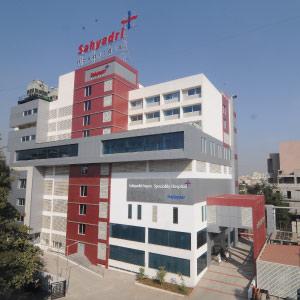
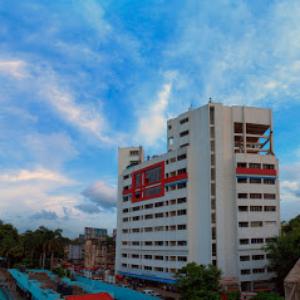

Plot No. 30-C, Erandvane, Karve Rd, Deccan Gymkhana, Pune - 411004
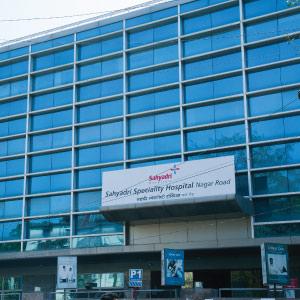

Near Hermes Heritage, Nagar Rd, Shastrinagar, Yerawada, Pune - 411006
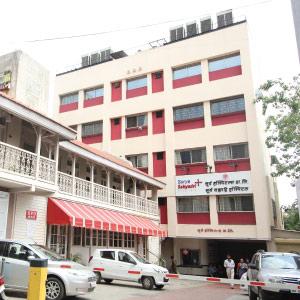
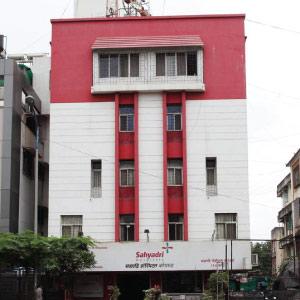

Neena Co-op. Housing Society, Plot No. 9-B, Lokmanya Colony, Kothrud, Pune - 411038
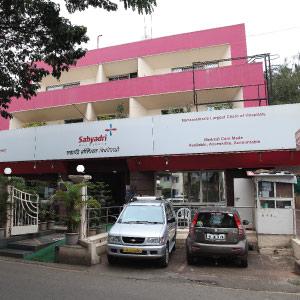

Plot No. 13 S. No. 573, Swami Vivekananda Marg, Bibwewadi, Pune - 411037
